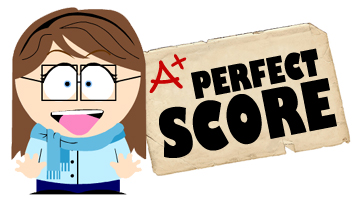How to get 800 on SAT Chemistry Test
Do you want to get 800 on SAT Chemistry test? Doesn’t everyone? Well, as a perfect scorer myself, I can say that this is no easy feat. But with the proper preparation and dedication, it is very possible to get 800 on SAT Chemistry II test. ! I will divide this advice guide into different sections, so keep reading.
When to Start
Well, this part depends on the person and what Chemistry course you take. I had a natural affinity for chemistry and I was in an AP class, so right after the AP exam, I spent one week to learn the part of SAT Chemistry test that I did not learn for AP exam (eg. Nuclear Chemistry) and to familiarize myself with SAT Chemistry test format which is quite different from AP Exam format. I also needed to revise some hazy material. If you are getting As in your AP chemistry class, then you probably only need two or three weeks maximum of prep. But if you struggle on class tests, or are averaging Bs, then you would be better off with a month or more of prep time if you want to have a chance to get 800 on SAT Chemistry test. If you are currently in Honors Chemistry class, then it is best that you prepare two months ahead for the test.
What Book and How to Use it
The book I used was the "Princeton Review", and it had really good practice questions and review material. The practice tests in the PR book were pretty similar to the real deal, if not a tad bit harder. The Barron’s book is also very good, and goes really in depth on the topics needed for the tests, but the tests in the book are much harder than the SAT test. For example, SAT college board only requires students to know qualitative analysis for colligative properties. But the Barron book goes into much more details in calculating the temperature and vapor pressure change for solutions. In the end, the book choice is just a preference between those two; both are really good for test prep. Kaplan, Spark Notes can be used as supplemental practice questions but neither is a good idea to use as a main SAT test prep book to study from because the test questions in those books are way too easy. When using the prep book, I recommend taking a practice test, giving yourself only 45 minutes. Even though you will have an entire hour on the test. You need to train yourself with limited time to allow you to truly gauge what you know, and will alleviate stress on test day, knowing you have plenty of time to finish. After finishing your diagnostic test, you should go through each and every question you got wrong, and write down the general topic of the wrong questions.
For example, if you were to get a question wrong in this series, you would write down "acids and bases" on your review list. After reviewing the test and finalizing your list, start going down the list and review each topic by reading the respective chapters in the review book, and even reviewing from your textbook or your class notes if necessary. After one week from your diagnostic test, you should take another test to see if you mastered any more of the topic. If you had to guess on any of the questions, circle those, and add it to your review list. And when going over your mistakes, make sure to actually understand the back of the book explanations. Basically, you keep following this method, each time making sure you are ruthless in analyzing and fixing your mistakes. When reviewing, make sure you focus on "atomic theory and structure", "stoichiometry" "equilibrium", "acids and bases", these are definitely the most tests topics. Also spend some time to study unique properties or structure of some common substances. For example, allotropes of carbon; the positive tests for common gases: hydrogen, oxygen and carbon dioxide and small amount of steam; network solids like diamond and sand, etc...
When Should I Take the Test
If you take the AP Chemistry test, you should try to schedule the SAT test for the weekend after the AP exam. Scheduling the subject test right after the AP exam lets you minimize the amount of time you need to study for both tests, and keeps the material fresh in your mind. But if you are in a honors class, or not taking the AP test, you should take the test in June, so you can give time for your teacher to finish teaching the last chapters in the book, which will probably be acids and bases and electrochemistry. At the end of March, you can start to review the first few chapters in the book, while waiting for your teacher to finish a few more chapters. It is very possible that you might have to study electrochemistry and organic chemistry on your own since most teachers can't finished all the chapters before June.
What Are Some Test Day Tips
The number one tip I can give is to never guess an answer on the test. Unless you can make a confident choice after getting the choices down to two, you should not guess because of a guessing penalty. You should also not stress about time if you follow my method, because you will have at least 15 extra minutes to finish the test. Finally, make sure you are bubbling the right answer choice; I made the mistake of messing up the bubbling sheet on my test, and I wasted five minutes trying to fix that careless mistake.
Also remember you can't use a calculator on the test, so always round your numbers up or down to select the closest answer. If you follow the above advice, I am sure you can get a very good score if not 800!

